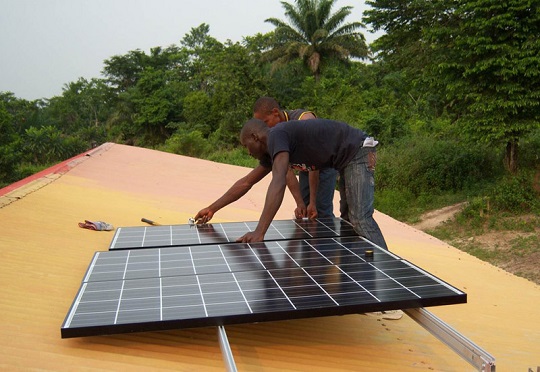The development potential of Nigerian mini-grids is valued at up to $20bn, according to a report by private sector think tank Nigerian Economic Summit Group and the U.S.-based sustainability NGO, Rocky Mountain Institute.
The report, based on a study of 10 solar-powered mini-grids with a combined capacity of 364 KW, said that development of off-grid systems, including mini-grids and solar home systems, could save individuals and businesses $6bn per year.
In addition, by scaling up the mini-grid market to 10,000 sites, each with a 1-KW capacity, the sector can electrify an estimated 14 percent of the population and generate annual returns of $3bn for investors by 2023. At present, there are 30 solar-powered mini-grids in Nigeria serving around 6000 customers.
Rural communities, in particular, would benefit from development of the market. Just 36 percent of the rural population is estimated to have consistent access to a centralized power supply, and use diesel and oil generators, which cost around N0.70 ($0.0019) per KWh compared to N0.57 ($0.0016) for a mini-grid connection.
As the market expands, costs for consumers could fall even further – by as much as 60 percent by 2020, the report found.
In addition to providing communities with a cheaper, more reliable electricity supply, the expansion of off-grid systems could help the energy sector circumvent distribution shortfalls affecting the transmission network.


















